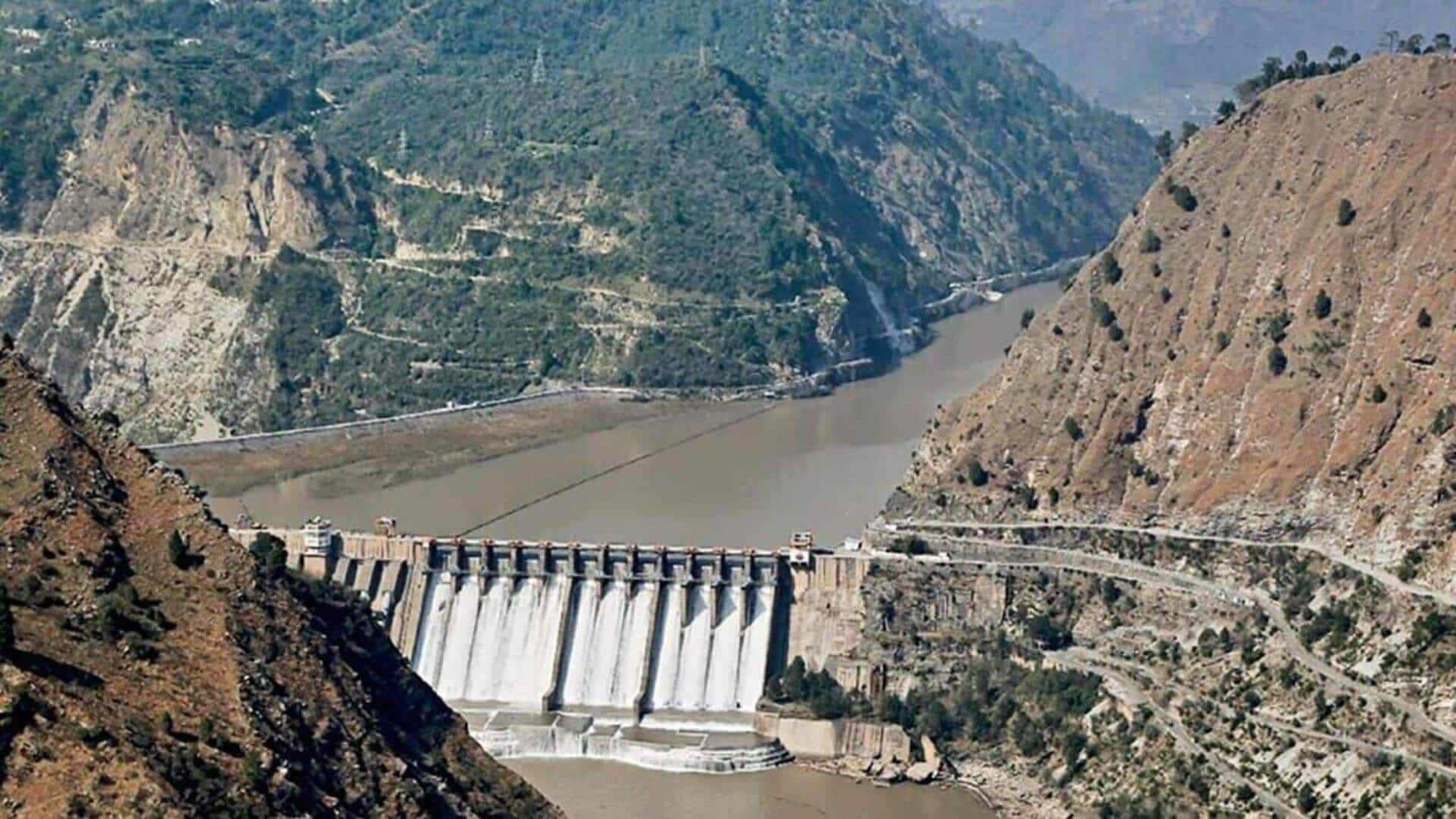
India starts work on hydro projects after suspending Indus Treaty
What's the story
Following a deadly terror attack in Pahalgam, Jammu and Kashmir, India had suspended the Indus Waters Treaty with Pakistan. The treaty, which has been in effect since 1960, regulates the use of six rivers of the Indus system between both countries. After suspending the treaty, India has now started reservoir flushing at Salal and Baglihar hydroelectric projects in Kashmir to increase power generation and remove sediment accumulation so that they will be more storage capacity, Reuters reported, citing sources.
Operational updates
Reservoir flushing operations initiated at Salal, Baglihar projects
The reservoir flushing at the Salal and Baglihar projects was allegedly undertaken without prior intimation to Pakistan. The process started on May 1 and was undertaken by NHPC Ltd., India's largest hydropower company. This is the first time such an exercise is being undertaken since these projects were constructed in 1987 and 2008/09, respectively. The operation is expected to boost power generation efficiency and prevent turbine damage, one of the sources told Reuters.
Attack aftermath
India's decision comes after Pahalgam terror attack
"We were also asked to open the adjustable gates for cleaning, which we did from May 1," the source added. Since suspending the Indus Waters Treaty, residents along the Chenab River reported rising water levels due to releases from Salal and Baglihar dams. Flushing hydropower plants necessitates nearly emptying a reservoir in order to drive out sediments, which accumulate and cause a significant decrease in output.
Water management
Temporary halt in water flow through Baglihar dam
For instance, the power supplied by the 690-MegaWatt Salal plant was significantly below its capacity because Pakistan had blocked such flushing, while silting severely reduced output at the 900-MW Baglihar project. The decision is viewed as a warning for Islamabad as bilateral tensions rise in the wake of the terror attack. The Kishanganga Dam on Jhelum may also see similar action.
Dispute details
No drop of the Indus River's water reaches Pakistan: Minister
According to government officials and experts on both sides, India cannot restrict water flows immediately because the treaty only allows it to build hydropower projects without major storage dams on Pakistan's three rivers. But the suspension implies that India "can now pursue our projects at our will," according to Kushvinder Vohra, a retired head of India's Central Water Commission. After the Pahagam attack, India's water minister had pledged to ensure that "no drop of the Indus River's water reaches Pakistan."